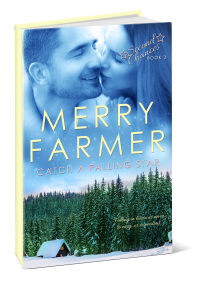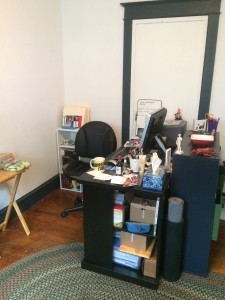Life Imitates Art – Writer’s Block Edition
I wouldn’t believe it if it wasn’t happening to me right now. Life really does imitate art, and in the most inconvenient ways.
 So as it happens, my next release—book 3 in my contemporary romance series, Catch a Falling Star—includes a heroine who is a romance writer. One of the challenges this heroine faces is that when outside forces affect her life, she comes down with a bad case of writer’s block. Worse still, she doesn’t even have the benefit of time to work it out. Oh no, she has a deadline, and is expected to produce a bestselling book in a short amount of time. But when everything else in her life gets turned upside down, she has trouble getting the words out.
So as it happens, my next release—book 3 in my contemporary romance series, Catch a Falling Star—includes a heroine who is a romance writer. One of the challenges this heroine faces is that when outside forces affect her life, she comes down with a bad case of writer’s block. Worse still, she doesn’t even have the benefit of time to work it out. Oh no, she has a deadline, and is expected to produce a bestselling book in a short amount of time. But when everything else in her life gets turned upside down, she has trouble getting the words out.
Well, since the beginning of the month, I’ve been in a slow process of moving, which has included cleaning and painting my new apartment. It has involved hauling all of my earthly belongings across town, getting things set up just the way I want, and paying people like movers. It has not involved a lot of writing, although I tried to keep at least a drip coming from the tap in the process.
Now that I’m moved in? Nothing. Nada. Zip.
Okay, well, not exactly nothing, but even though things have started to calm down (and the cats are back!), I’m finding it extremely difficult to get my brain back into normal, everyday writer mode.
Writer’s block happens, even to those of us who insist that we never get blocked. How could we get blocked? We have more ideas than you can shake a stick at? It’s not as if the well is dry, it’s just that we can’t figure out how to access the water now that the bucket has been changed. In a way, it’s the cruelest kind of writer’s block, because we can see what’s there, see what needs to be done, but rediscovering the will to do it is like turning on a rusty tap after a decade of not being used.
So what are some strategies we can use to overcome these annoying phases of our career?

My new work space…about 90% complete. I need art!
I think the first and most important is developing patience. Not necessarily patience with our work. The words are the words. They will come when they come, even on the best days. No, the patience that we need to develop is with ourselves. I feel blessed because I was firing pretty much on all cylinders for the entire summer, in spite of traveling. Blessedly, it means that I’m actually a bit ahead of schedule in the writing department, although I would always love to write and publish more. So I need to take a deep breath and tell myself that unlike my heroine in Catch a Falling Star, I have time to figure this out.
There are also other things we can do within the realm of writing that will kick-start the muse and invite her to come back. I’ve written several times before about my practice of writing about my writing, or writing notes on the things I’m working on. So last night, I sat down and filled up four pages about the backstory of my characters in the novel I’m working on now. In the process, I discovered things about them that I wasn’t consciously aware of that will help to make the plot and their love story richer. You can never go wrong when you get out the old pen and paper and write about your writing.
The other big thing that I’m in the process of doing is following some of the best advice Stephen King gives in his book On Writing. He advocates creating a writing space and a specific writing time in your day and sticking to that routine in order to make the muse come. Well, moving, by its nature, has destroyed the writing space I formerly had. But I have a new space now, and I’m determined to sit in it at my old writing time and do at least some work. If that’s not hollering for the muse to come back, I don’t know what is.
At the end of the day, the most important thing you can do to bust through writer’s block is to write. I like to use a football analogy, of all things, to describe it. No matter if it’s inches or yards, every time you sit down to write, move the ball forward. Sometimes it’s only a few inches before first down, but if you give up and get paralyzed, you’ll never make it those last few inches. Write something, only if it’s a paragraph or a page.
So there we go. Writer’s block is real. It happens. But it doesn’t have to be a long illness. It’s something that you can break through with the right environment and a little determination. So what are your techniques for busting through the block?



